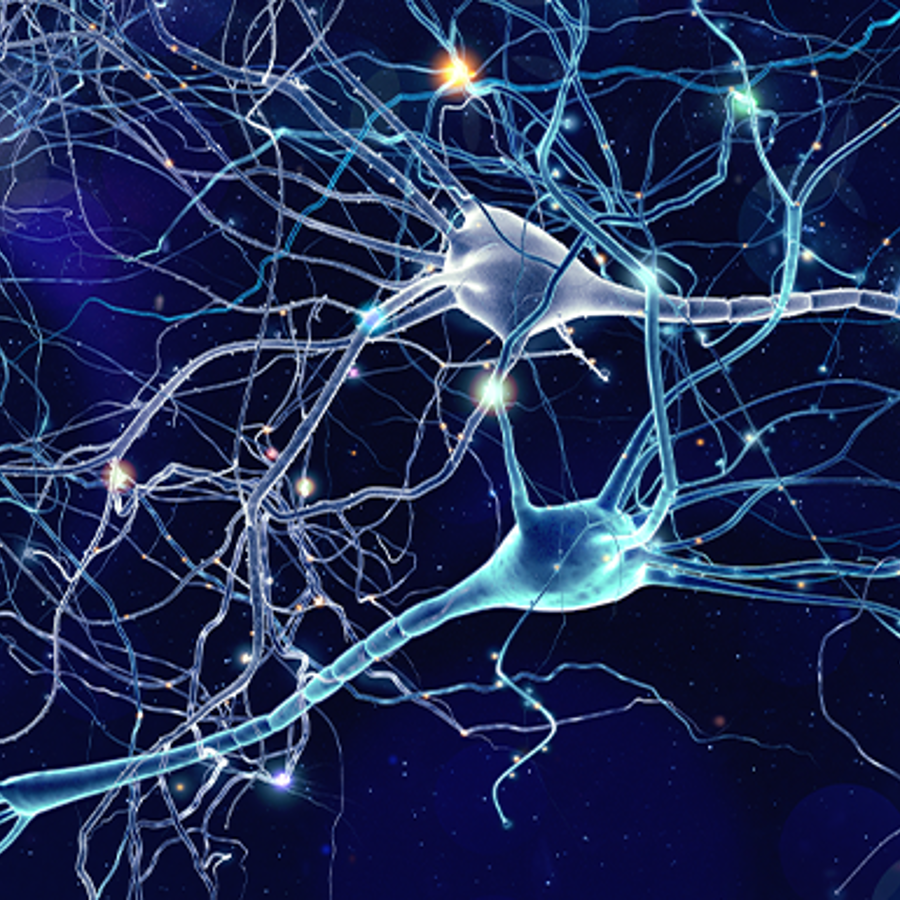
I have rs3849942(A;A). Does this mean I for sure will end up with ALS?
February 27, 2017

- Related Topics:
- Complex traits,
- Medical genetics,
- Genetic variation
A curious adult from the United Kingdom asks:
"I am worried about familial ALS because I have rs3849942(A;A). Does this mean I for sure will end up with ALS?"
The short answer to your question: no.
The DNA change you are asking about is found more often in people with ALS, but not by much. In other words, having this bit of DNA does not mean you will for sure end up with ALS.
ALS stands for amyotrophic lateral sclerosis. It is a neurodegenerative disease of the neurons that control the movement of our muscles.
Your DNA change is very different from the rare DNA differences that actually cause familial ALS. If you have one of these, you have almost a 100% chance of getting ALS.
To repeat, the DNA difference you have is not one of these! It just makes you a bit more likely to get ALS.
Another way to put this is that there are lots of people who have rs3849942(A;A) and who don’t have ALS. And vice versa: there are lots of people who have ALS who don’t have this marker!
Think of it like walking through a part of a city with a slightly higher crime rate. Yes, your chances of being robbed are a bit higher here, but getting robbed is by no means a sure thing. Most people walking through that part of town are not robbed, even though there is a higher chance of it happening.
Odds are that you probably won’t be robbed. Or in this case, end up with ALS because you have this one marker.
ALS is a fairly rare condition. About 5-7 people out of every 100,000 people in the US have ALS at any one time.
Having this bit of DNA raises that risk to closer to a 10 in 100,000 chance, which is still less than 1%. Your risk does go up if you have this marker, but not by a lot!
Although genetics can play a role in who gets ALS, we think only a very small number of ALS cases are caused 100% by genetic mutations. Again, this genetic marker is not one of those mutations.

What is rs3849942(A;A)?
Our DNA is basically a long string of letters that our body reads to build and run each one of us. There are only four letters in that string: A, T, G, and C.
More than 99% of the time, we have the same sequence of letters as any other person on Earth. But since we’re all a little bit different from each other, we all have some changes in our DNA that are different from the next person.
rs3849942(A;A) is what we call a SNP (pronounced “snip”), which stands for single nucleotide polymorphism. A SNP is just a change in one letter of our six billion DNA letters.

In your case, we know you’re asking about a SNP because the name of the change starts with the letters “rs”. This stands for “reference SNP”.
Most people have a G at rs3849942. The “A;A” part of the SNP tells us that you have an A at this position. In fact, you have two A’s.
We inherit one copy of each of our genes from each of our parents to get a total of two copies of each gene. Since SNPs are just markers in and around our genes, we also inherit two copies of most SNPs too.
You got an “A” from your mom and an “A” from your dad. That’s why you’re “A;A” and not just “A” or “G” or “AG.”
One way to think about it is to imagine that all of our DNA is like a very, very, very long sentence. It’s actually more like a huge encyclopedia. A SNP is a one letter swap somewhere in the encyclopedia.
Fortunately, most SNPs aren’t going to cause harm. This is actually why SNPs are called “polymorphisms.”
Polymorphism means “multiple forms.” SNPs are just places in the DNA that can come in multiple flavors.
These different flavors don’t really cause any problems themselves. However, there are some SNPs that have been linked to certain traits or diseases in humans. The rs3849942 SNP you brought up has been linked to ALS.
But rs3849942 is nowhere near as predictive as one of the mutations that causes familial ALS. Remember, these individuals have almost a 100% chance of getting ALS. Instead of being a for-sure thing, the ALS SNP you’re asking about just increases the odds a tiny bit.
Why would rs3849942 be linked to ALS?
Scientists aren’t really sure why this SNP is linked with ALS. It might just be close to a gene that plays a role in developing ALS. If the SNP is close enough to a gene like this, it shows up as linked to ALS.
The bottom line is: having the SNP doesn’t cause ALS. Many other factors play a role in who gets ALS. Not smoking, for example, could theoretically offset someone’s chance of getting ALS, even if they had the rs3849942 SNP.
This is why it’s so important that people get help in understanding their DNA results. There is a lot of information out there, but not a lot of explanation about what this means for someone’s health.
It can be very complicated to figure out exactly what a genetic result means if you don’t work with genetics every day. (And even if you do look at genetics every day, it can be very tricky!)
Luckily, there are genetic counselors, medical geneticists (doctors specializing in genetics), and other medical professionals who can help you interpret results like these. And we do our best here too.

Author: Karina Liker
When this answer was published in 2017, Karina was a student in the Stanford MS Program in Human Genetics and Genetic Counseling. Karina wrote this answer while participating in the Stanford at The Tech program.
 Skip Navigation
Skip Navigation
